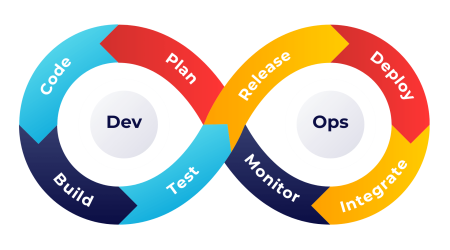The Future of Mobile App Development: Trends & Challenges
The Future of Mobile App Development in a Rapidly Evolving World. Mobile apps are no longer a luxury, they’re a necessity. Whether it’s for e-commerce, healthcare, or enterprise solutions, businesses need seamless, user-friendly apps to stay competitive. Mobile apps have transformed how businesses operate, engage customers, and drive revenue. With 6.8 billion smartphone users globally , a well-crafted app can be your gateway to success.
From small startups to Fortune 500 companies, apps are now central to customer experience, brand loyalty, and operational efficiency. Consider this: 90% of mobile internet time is spent on apps (App Annie), and businesses with apps see 3x higher customer retention than those without. Apps also enable real-time interactions, whether through push notifications, in-app purchases, or AI-driven personalization.
1. Why Mobile Apps Matter for Businesses
- Enhanced Customer Engagement: Push notifications keep users informed in real-time, while loyalty programs reward repeat purchases and foster brand love. With 24/7 accessibility, mobile apps ensure customers can interact with your business anytime, anywhere
- Competitive Edge: n saturated markets, a well-designed app helps you stand out by offering unique features like one-click ordering or AR try-ons. Take Starbucks: their app contributes 23% of total revenue by blending convenience with personalized rewards.
- Streamlined Operations: From logistics apps tracking shipments in real-time to HR apps automating payroll, mobile solutions cut manual work and errors. Sales teams using apps close deals 20% faster with instant access to CRM data on the go.

2. Key Mobile App Development Trends (2024)
Stay ahead with these top trends:
a) AI & Machine Learning
- Personalized recommendations (e.g., Netflix, Spotify).
- AI chatbots for 24/7 customer support.
b) 5G-Powered Apps
- Faster speeds enable real-time gaming, AR/VR, and IoT integration.
c) Cross-Platform Development
- Flutter & React Native reduce costs by 30-40% vs. native apps.
d) Super Apps
- Single apps for multiple services (e.g., Grab, WeChat).
e) Enhanced App Security
- Biometric logins, GDPR compliance, and blockchain for data safety.
3. Types of Mobile App
| Type | Pros | Best |
| Native (iOS/Android) | High performance, best UX | Complex apps (e.g., games) |
| Hybrid (Flutter) | Cost-effective, faster development | Startups, MVPs |
| PWAs | No installs, works offline | E-commerce, news portals |
4. Step-by-Step App Development Process
- Discovery Phase: Define goals, audience, and features.
- UI/UX Design: Wireframes > prototypes > final designs.
- Development: Agile coding with weekly updates.
- Testing: QA for bugs, speed, and usability.
- Launch & Maintenance: Post-launch support and updates.
5. How Much Does App Development Cost?
- Simple App: £10K–£30K (basic features, no backend).
- Mid-Level App: £30K–£70K (e.g., e-commerce with APIs).
- Complex App: £70K+ (AI, multi-platform, custom backend).












Comments (10)
very informative!
Nicely articulated article which covers major aspect of app development with tech stack and costing, etc. Mobile Apps are inevitable for businesses these days and their accessibility give them upper edge on all other mediums.
App security is more important than ever, especially with the rise in data breaches. It’s great to see a focus on biometric logins and blockchain for enhanced data safety. Security should always be a top priority in app development.”
A forward-thinking blog that captures the complexity of mobile app evolution.
Really enjoyed this article! It’s impressive how mobile apps have become essential for businesses across various sectors. The statistics on user engagement and customer retention highlight their significance. The breakdown of trends like AI integration, 5G capabilities, and cross-platform development was particularly insightful. Also, the cost estimates and development process overview provide a clear picture for anyone considering app development. Thanks for sharing such valuable information!
Thank you so much for the kind words and thoughtful feedback! We’re glad you found the article informative and insightful. Mobile apps have indeed become a vital part of business strategy, and it’s exciting to see how trends like AI, 5G, and cross-platform development are shaping the future. We’re happy the cost breakdown and development process added clarity for those exploring app development. Stay tuned for more content on emerging tech and digital innovation!
Mobile apps have become essential for businesses in every industry, transforming how we engage, operate, and grow. In this blog, discover why mobile apps matter more than ever, the top development trends of 2024, and what it takes to build a high-impact app. From AI integration to cross-platform efficiency, we cover it all. Stay ahead in a mobile-first world by understanding the future of app development.
Love the nod to eco conscious development, battery/data saving, green design practices—aligning app dev with broader sustainability and conscious user expectations.
Great overview of where mobile app development is headed! The blend of AI, cross-platform tech, and evolving user expectations makes this space more exciting—and challenging—than ever.
it’s an exciting time for mobile app development. The integration of AI and cross-platform frameworks is opening up new possibilities, while rising user expectations keep pushing us to innovate and deliver smarter, more intuitive experiences.